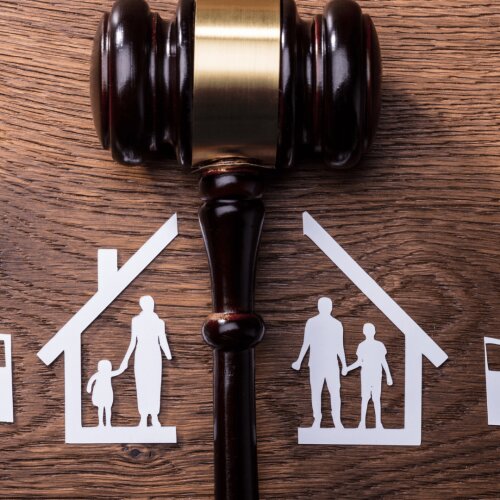Best Civil Rights Lawyers in Brasília
Share your needs with us, get contacted by law firms.
Free. Takes 2 min.
List of the best lawyers in Brasília, Brazil
About Civil Rights Law in Brasília, Brazil
Civil Rights law in Brasília, Brazil, is grounded in the Federal Constitution of 1988, which guarantees the fundamental rights and freedoms of all citizens. As the capital of Brazil, Brasília is not only the seat of governmental power but also a hub for civil rights advocacy and legal protections. Civil Rights encompass a broad range of legal protections, from freedom of expression and religion to the right to privacy, equality, and protection against discrimination. In Brasília, both federal and local mechanisms ensure that individuals' rights are defended, with legal recourse available in cases of violation.
Why You May Need a Lawyer
You may need a lawyer specializing in Civil Rights if you believe your constitutional rights have been violated or if you are facing issues related to discrimination, freedom of speech, access to public services, police misconduct, or unfair treatment by governmental authorities. Lawyers provide crucial assistance when filing complaints, representing you in court, or engaging with government agencies. They help navigate the complexities of Brazil’s legal system, offer strategic advice, and ensure that your rights are protected at every stage of any legal process.
Local Laws Overview
Brasília operates under the umbrella of Brazil’s Federal Constitution but also applies its own local statutes and regulations that can influence civil rights cases. Relevant aspects include:
- Equality and Non-Discrimination: Laws prohibit discrimination based on race, color, gender, religion, age, or origin. Local authorities have additional policies to promote inclusion and protect vulnerable groups.
- Access to Justice: Brasília provides mechanisms such as the Public Defender’s Office (Defensoria Pública) for those unable to afford private legal representation.
- Freedom of Expression and Assembly: While protected, these rights may be subject to reasonable limitations to maintain public order.
- Protection Against Abuse: There are specific regulations and oversight bodies to handle police misconduct, unlawful detainment, and abuse by public officials.
- Right to Information: Citizens can request government data and hold authorities accountable under transparency and access-to-information laws.
Frequently Asked Questions
What are my basic civil rights in Brasília?
Your basic civil rights include freedom of expression, religion, privacy, assembly, and protection against discrimination. These are outlined in the Federal Constitution and reinforced by local laws.
Can I file a complaint if I experience discrimination?
Yes. You can file complaints with various governmental agencies, such as the Ministério Público or the Public Defender’s Office. You can also seek support from NGOs focused on civil rights.
What should I do if I am a victim of police abuse or misconduct?
You should document the incident, seek medical attention if necessary, and file a complaint with the local corregedoria (internal affairs office), the Ministério Público, or a civil rights lawyer.
Do I need a lawyer to file a civil rights complaint?
While you can file some complaints on your own, having a lawyer helps ensure your case is presented correctly and that your rights are fully protected throughout the process.
How can I access free legal aid in Brasília?
The Public Defender’s Office (Defensoria Pública) provides free legal assistance to those who cannot afford private lawyers. Applications can be made in person or through scheduled appointments.
Are there protections against hate crimes in Brasília?
Yes. Federal and local laws explicitly criminalize hate speech, racism, and hate-motivated violence. Victims should report such incidents to the police and seek legal support.
What rights do minority groups have in Brasília?
Minority groups are protected under anti-discrimination laws and benefit from affirmative action policies in areas such as public employment and education.
How long does it take to resolve a civil rights case?
The timeline varies depending on the complexity of the case and the court’s workload. Some administrative complaints are resolved within weeks, while judicial processes can take months or longer.
Can I appeal a decision in a civil rights case?
Yes. If you believe a decision was incorrect or unjust, you may appeal through the appropriate judicial channels, typically with the assistance of a lawyer.
What evidence is important when pursuing a civil rights case?
Relevant evidence includes witness statements, photographs, official documents, recordings, and any communications related to the incident. A lawyer can advise on the collection and presentation of evidence.
Additional Resources
For further information and support regarding Civil Rights in Brasília, you may consider contacting:
- Defensoria Pública do Distrito Federal: The Public Defender’s Office for free legal assistance.
- Ministério Público do Distrito Federal e Territórios: The Public Prosecutor’s Office for complaints against public officials and institutions.
- Specialized Human Rights Programs: Offered by the Secretaria de Justiça e Cidadania do DF.
- Local Bar Association (OAB/DF): The Ordem dos Advogados do Brasil, Seção Distrito Federal, for lawyer referrals and legal guidance.
- Non-Governmental Organizations: Various NGOs in Brasília offer support, advocacy, and information related to civil rights and social justice.
Next Steps
If you believe your civil rights have been violated in Brasília or if you need legal assistance, consider the following steps:
- Gather as much documentation and evidence as possible regarding your situation.
- Contact the Public Defender’s Office if you require free legal help or cannot afford a private lawyer.
- Seek referrals or consultations with lawyers specializing in civil rights law through the local bar association.
- File formal complaints with the appropriate government agencies if your case involves discrimination, police abuse, or denial of public services.
- Reach out to advocacy organizations for support, guidance, and information on further actions.
Lawzana helps you find the best lawyers and law firms in Brasília through a curated and pre-screened list of qualified legal professionals. Our platform offers rankings and detailed profiles of attorneys and law firms, allowing you to compare based on practice areas, including Civil Rights, experience, and client feedback.
Each profile includes a description of the firm's areas of practice, client reviews, team members and partners, year of establishment, spoken languages, office locations, contact information, social media presence, and any published articles or resources. Most firms on our platform speak English and are experienced in both local and international legal matters.
Get a quote from top-rated law firms in Brasília, Brazil — quickly, securely, and without unnecessary hassle.
Disclaimer:
The information provided on this page is for general informational purposes only and does not constitute legal advice. While we strive to ensure the accuracy and relevance of the content, legal information may change over time, and interpretations of the law can vary. You should always consult with a qualified legal professional for advice specific to your situation.
We disclaim all liability for actions taken or not taken based on the content of this page. If you believe any information is incorrect or outdated, please contact us, and we will review and update it where appropriate.










